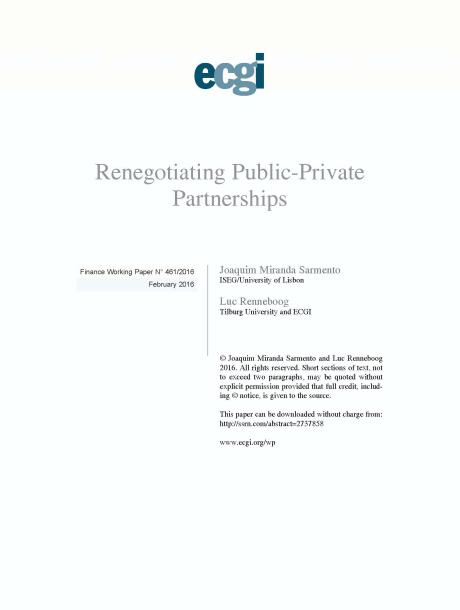
Renegotiating Public-Private Partnerships
Abstract
There is a growing concern about the frequency of renegotiations in Public Private
Partnerships (PPPs). We focus our research on the Portuguese experience and study
254 renegotiation events of 35 PPP contracts since 1995, and examine the triggers of
renegotiations and who initiates them. We also investigate whether both the public and private sector learn from successive renegotiations in terms of the timing of renegotiations, contract design, regulatory change, and bargaining power extraction. We show that previous experience in renegotiations reduces the likelihood of renegotiations, and that electoral cycles and political connections lead to strategic behavior of both the public and the private sectors. The bargaining power seems to be mostly held by private firms who are often able to extract the rents what they set out to get at the beginning of negotiations by starting negotiations in the year prior to elections, and especially when they built out political connections. The learning from renegotiations on the public sectors side, in terms of contract design and execution of regulatory change seems modest.
